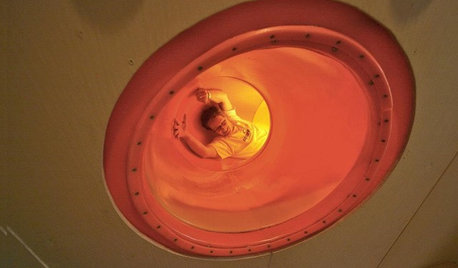What age do you end distemper shots?
Flex Design LLC
13 years ago
Related Stories

DECORATING GUIDESGive That Coffee Table an Extra Shot of Style
Corral necessities neatly or add an eye-catching base for display with a tray that sets off your table or ottoman
Full Story
HOUSEPLANTSOne Pot, One Big Shot of the Tropics
Give your rooms exotic flair in a single stroke. Tall Kentia palm fits the tropical bill beautifully
Full Story
DECORATING GUIDESPaper Chase: Wallpaper Through the Ages to Today
Get on a decorating roll with a wall covering that's been around for centuries but comes in more exciting designs than ever
Full Story
REMODELING GUIDESHouzz Tour: A Drive in the Country Ends in a Remodel
A couple out for a spin find a cottage with untapped potential. Their redo highlights lovely views and midcentury charm
Full Story
HOUZZ TOURSMy Houzz: High End Meets Budget Friendly in Toronto
Splurging selectively and saving elsewhere, a Canadian family gets a posh-looking home that matches their vision
Full Story
CONTEMPORARY HOMESHouzz Tour: Reading Shapes a Seattle Home
Written words drive the design of a house for aging in place, from a plethora of bookshelves to a personal word wall
Full Story
KITCHEN OF THE WEEKKitchen of the Week: Midcentury Meets Sweden in Minneapolis
A fun, retro-style makeover gives an aging galley kitchen a fresh look with a nod to the past
Full Story
FUN HOUZZGuessing Game: What Might Our Living Rooms Say About Us?
Take a shot on your own or go straight to just-for-fun speculations about whose homes these could be
Full Story
DECORATING GUIDESPop Culture Watch: 12 Home Trends from the '80s Are Back
Hold on to your hat (over your humongous hair); interior design elements of the 1980s have shot forward to today, in updated fashion
Full Story
FUN HOUZZIndoor Slides Make Getting There All the Fun
Take a straight shot between floors or twist up your ride with a spiral. An indoor slide puts the playground right at your feet
Full StoryMore Discussions








jomuir
cynthia_gw
Related Professionals
Spring Valley Architects & Building Designers · Centerville Interior Designers & Decorators · Washington Interior Designers & Decorators · Dallas Furniture & Accessories · Redmond Furniture & Accessories · Rockville Furniture & Accessories · Farmington Furniture & Accessories · Riverbank Cabinets & Cabinetry · Apple Valley Flooring Contractors · Corona Flooring Contractors · Everett Flooring Contractors · Gallatin Flooring Contractors · Johns Creek Flooring Contractors · Moses Lake Flooring Contractors · San Rafael Flooring Contractorstrancegemini_wa
spedigrees z4VT
pamghatten
nhardy
Meghane
lzrddr
Meghane